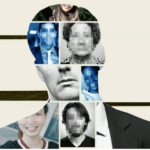
Some of the things Oakland Privacy had a hand in in 2024:
- Successfully opposes Berkeley City Manager proposal to move City Council meetings from 6:00 PM to 10:00 AM.
- Various California Legislative committees cite/quote multiple letters from Oakland Privacy in their bill analyses.
- Successfully opposes bill in CA Legislature that would have weakened the Brown Act (open public meetings law).
- Successfully opposes a very bad bill in CA Legislature promoting facial recognition technology.
- OP member Mike Katz-Lacabe, a named plaintiff in a class-action privacy suit against Oracle, participates in a $115M settlement agreement.
- Strong opposition to a proposed settlement of the Clearview class-action privacy suit, which proposed to give stock in Clearview to the class members! In January 25, one OP member travelled to Chicago to give testimony in the settlement hearing.
- Participated in the “Stop Mask Bans” campaign organized by Fight for the Future.
- Successfully advocates against installing ALPRs in Eureka, CA.
- OP becomes an official non-profit.
https://oaklandprivacy.org/oakland-privacys-year-in-bullet-points-2023/



